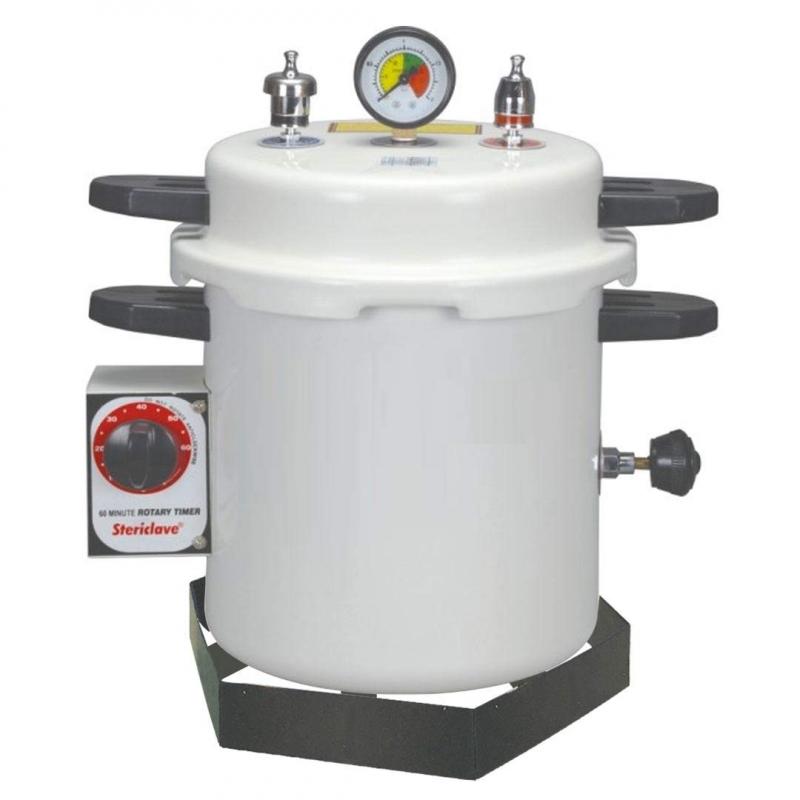Dentistry has come a long way in ensuring the safety and well-being of patients. One essential tool that has revolutionized dental practices is the dental autoclave. As a crucial piece of sterilization equipment, the dental autoclave plays a pivotal role in maintaining the highest standards of infection control and preventing the spread of infectious diseases. In this blog post, we will delve into the importance and benefits of dental autoclaves in modern dentistry.
- Understanding Dental Autoclaves
Dental autoclaves are sophisticated devices that utilize high-pressure steam to sterilize dental instruments, equipment, and other materials. The sterilization process effectively eliminates bacteria, viruses, fungi, and spores, rendering dental tools safe for use on patients. Dental autoclaves are designed to reach and maintain specific temperature and pressure levels, ensuring optimal sterilization results.
- Ensuring Patient Safety
One of the primary reasons dental autoclaves are indispensable in modern dentistry is patient safety. Sterilizing dental instruments and equipment is critical in preventing cross-contamination and the transmission of infectious diseases from one patient to another. Proper sterilization reduces the risk of infections and complications, promoting a safe dental environment for both patients and dental professionals.
- Meeting Regulatory Standards
Adherence to strict regulatory standards is essential for dental practices. Health authorities and dental boards often require dental clinics to use certified sterilization equipment like autoclaves to maintain proper infection control protocols. By using dental autoclaves, dental professionals can confidently meet these standards, avoiding potential legal and ethical consequences.
- Versatility in Sterilization
Dental autoclaves offer a versatile solution for sterilization needs. They can effectively sterilize a wide range of instruments, including handpieces, forceps, scissors, and more. Autoclaves are also used to sterilize materials like gauze, cotton rolls, and dressings, making them invaluable in maintaining a hygienic dental practice.
- Time and Cost Efficiency
Incorporating dental autoclaves in a dental clinic's workflow can lead to considerable time and cost savings. The automated sterilization process reduces the need for manual cleaning and disinfection, streamlining dental procedures and allowing more patients to be attended to efficiently. Additionally, the autoclave's long lifespan and minimal maintenance requirements contribute to cost-effectiveness in the long run.
- Environmentally Friendly Sterilization
The use of dental autoclaves promotes eco-friendliness in dental practices. The steam sterilization process is chemical-free, minimizing the release of hazardous substances into the environment. Unlike other sterilization methods that may produce harmful waste, autoclaves generate only clean, condensed water vapor, reducing the clinic's environmental footprint.
- Enhanced Material Longevity
Repeated use of dental instruments without proper sterilization can lead to premature wear and tear. Autoclaving helps preserve the longevity of dental tools by ensuring they are thoroughly sterilized without the use of harsh chemicals that may corrode or degrade materials.
- Sterilization Assurance and Monitoring
Most modern dental autoclaves come equipped with built-in features for monitoring and recording the sterilization process. These features ensure that each cycle meets the necessary temperature and pressure requirements for effective sterilization. Additionally, autoclaves may have data storage capabilities, allowing dental clinics to maintain a comprehensive sterilization record for quality control and auditing purposes.
- Education and Awareness
Having a dental autoclave in the dental practice promotes education and awareness among dental professionals and patients. Dental professionals are continually reminded of the importance of infection control, while patients gain confidence in their dental care knowing that their safety is a top priority.
Conclusion
Dental autoclaves have become an indispensable tool in modern dentistry, upholding high standards of infection control, patient safety, and regulatory compliance. By investing in dental autoclaves, dental practices not only protect their patients and staff from infectious diseases but also improve efficiency, reduce costs, and contribute to a healthier environment. Embracing dental autoclaves is a significant step towards providing optimal dental care while ensuring a safe and hygienic environment for all.
